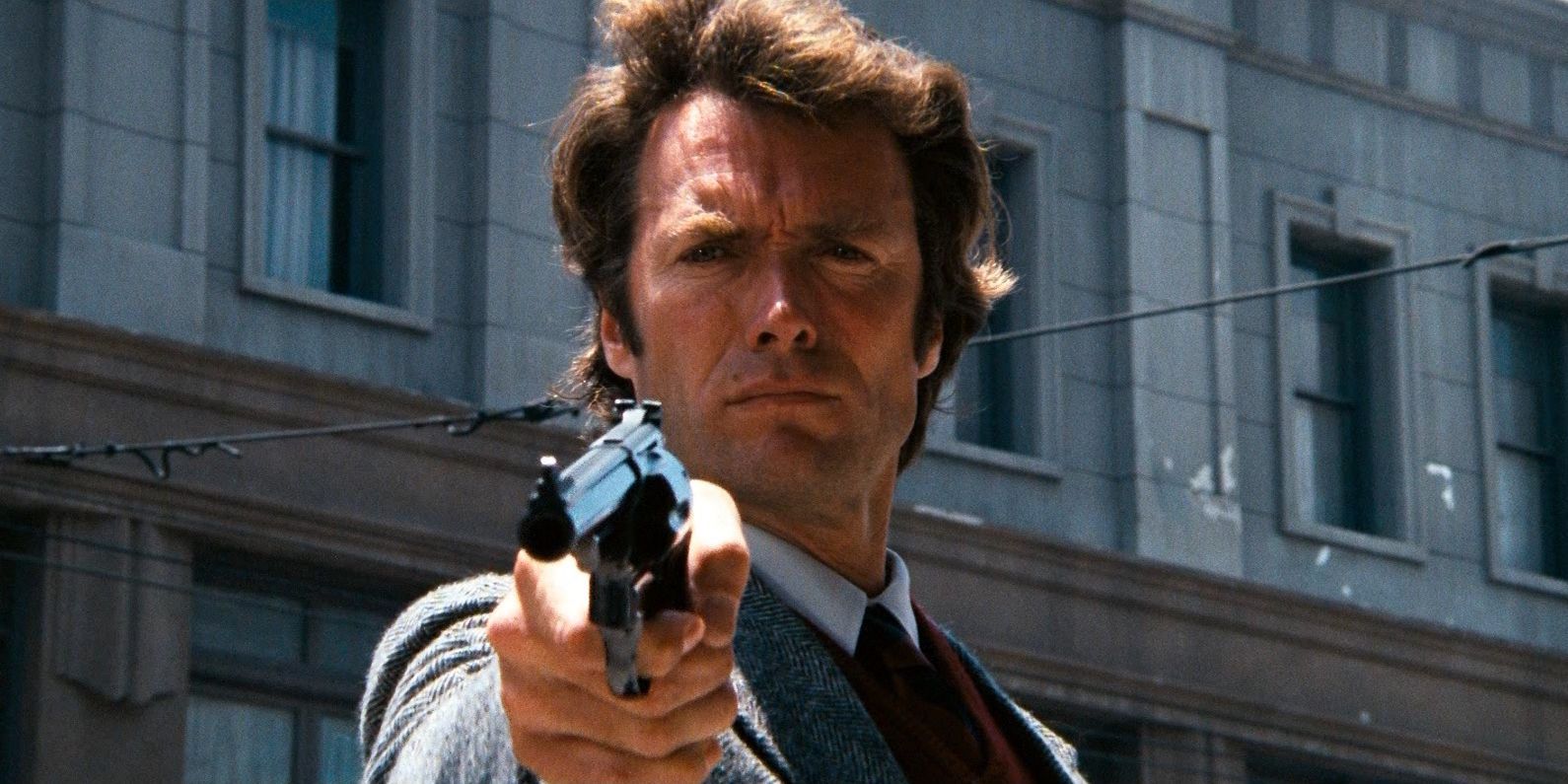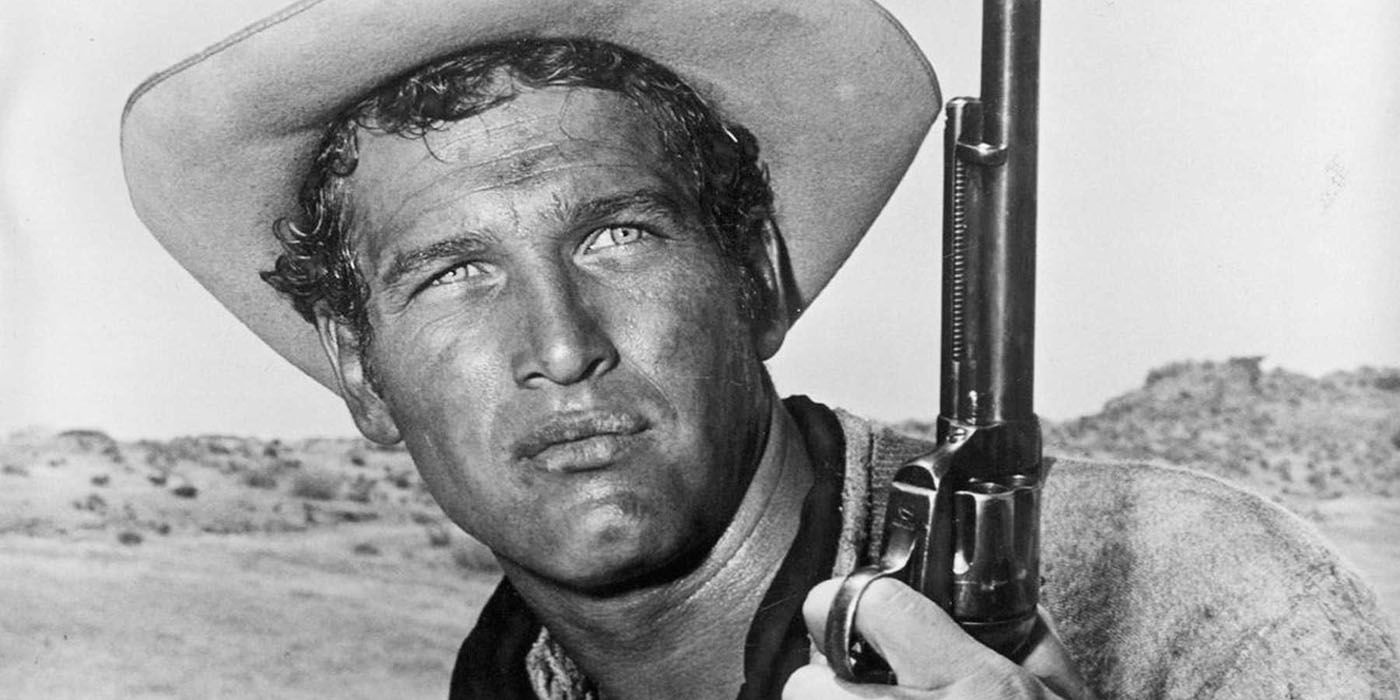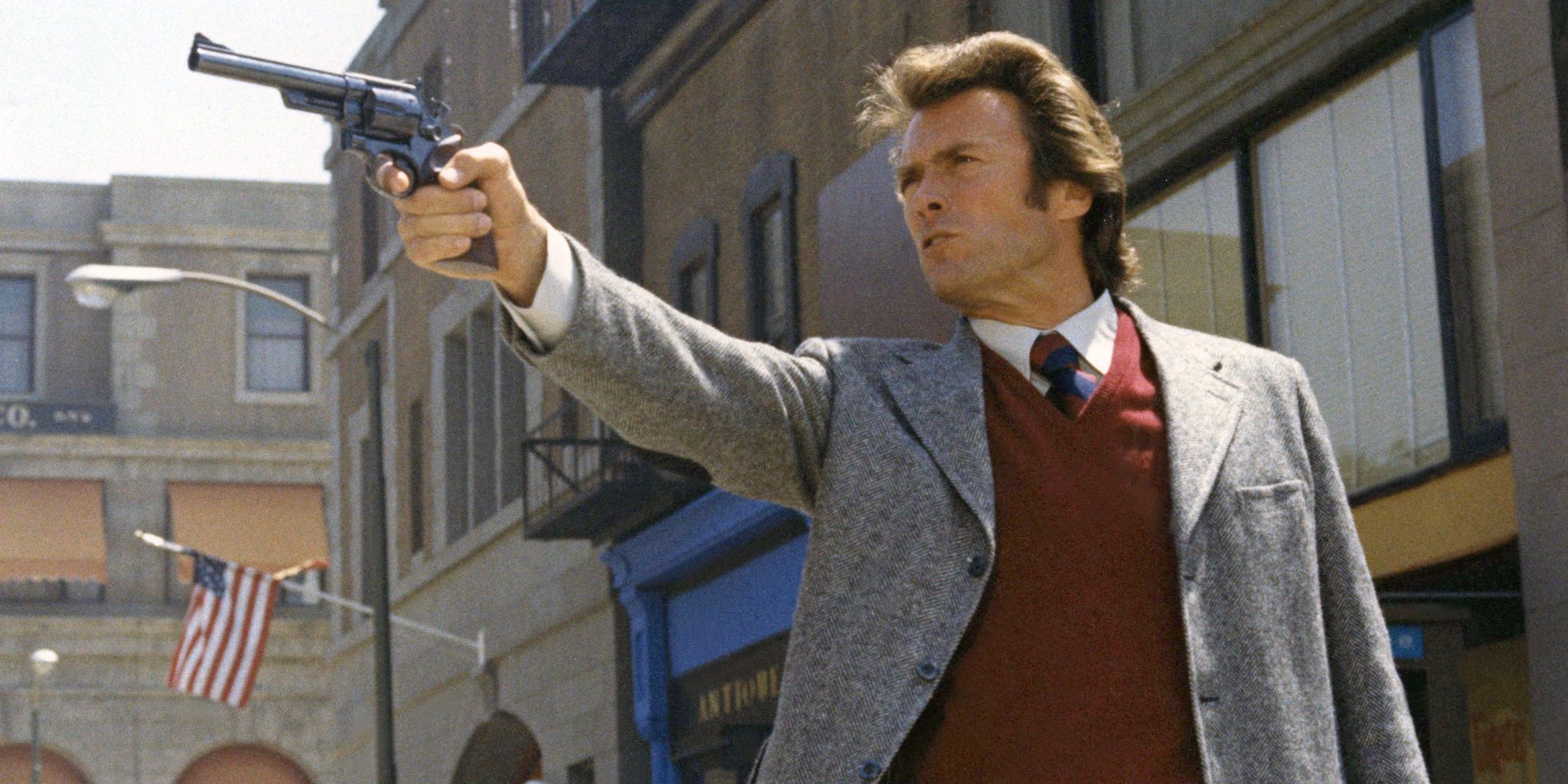Clint Eastwood
The Clint Eastwood Character You Are Based On Your Zodiac Sign

It’s hard to believe that one of the most revered careers in the history of American cinema began with a cheap monster movie sequel. Nevertheless, 1955’s “Revenge of the Creature” is a rushed follow-up to the 1954 Universal Studios classic “Creature from the Black Lagoon,” and so bad that it was parodied on an episode of “Mystery Science Theater 3000” decades later. In one scene, a 25-year-old Clint Eastwood plays a hapless laboratory worker with a mouse in his coat pocket. “This guy’s bad,” Tom Servo scoffs. “This is his first and last movie.”
It was indeed Eastwood’s first movie, but far from his last. In 1959 he would land the role of Rowdy Yates on the long-running TV western “Rawhide,” gaining his first modicum of recognition. When that series ended in 1965, Eastwood headed across the Atlantic for a trio of monumental, genre-defining Westerns for Italian director Sergio Leone, and the rest, as they say, is history. In the more than six decades since “Revenge of the Creature,” Eastwood has proven to be an American icon, one of the most recognizable movie stars of all time and a director of uncommon skill and discipline. Many of his best films have a thoughtfulness and ambivalence toward violence, nostalgia, and heroism that run counter to, or at least complicate, his popular image as a conservative tough guy.
Even if we are not all six-foot-four, steely-eyed jazz piano enthusiasts, audiences have been themselves in the many roles of Eastwood for an astounding 8 decades now. Which role fits you best? The answer, as it often does, lies in the stars. Using the signs of the zodiac, let’s take a look at the Clint Eastwood character which most closely lines up with your personality.
Aries (March 21-April 19): Philo Beddoe
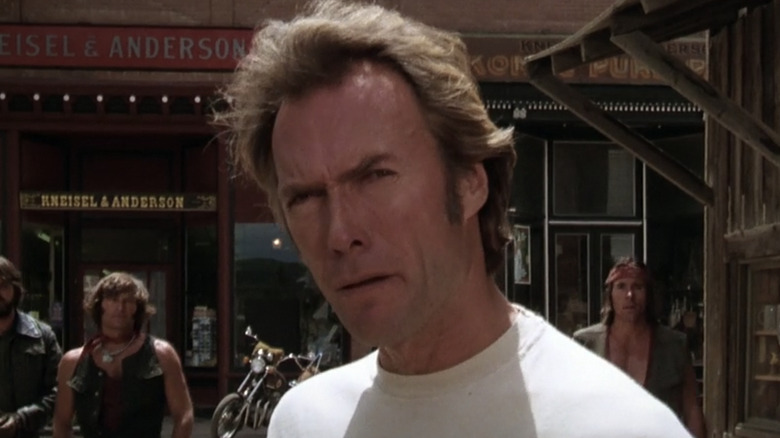
You’re an Aries. Brash and impulsive, you’ll rush headlong into any situation like the symbolic ram that you are. Your optimism and self-confidence can be very attractive to others, but it can also curdle into a selfish streak and a quick temper when things don’t go your way. You’re ready to prove that you’re the best at just about anything, but you’re just as happy heading down the open road to the next new adventure, preferably with your orangutan pal by your side.
Yes, if you’re an Aries, that means that you are the hard drinking, hard fighting Philo Beddoe from 1978’s “Every Which Way but Loose” and its 1980 sequel “Any Which Way You Can.” Riding a wave of country-fried hits in the mid-to-late 1970s that included the Burt Reynolds classic “Smokey and the Bandit” and C.W. McCall’s 1975 novelty song “Convoy,” the “Which Way” films found Eastwood at his most easy going. Philo Beddoe is still a man of violence, like Dirty Harry or Josey Wales, but it’s a cheerful, no-hard-feelings sort, as the trucker turned bare-knuckle brawler travels California looking for the next good time with his pal Orville (Eastwood regular Geoffrey Lewis) and pet orangutan Clyde.
Taurus (April 20-May 20): Gus Lobel
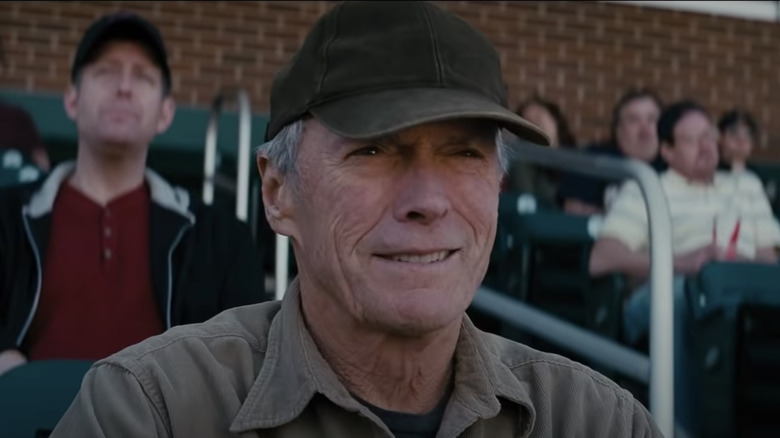
Is a Taurus stubborn, or simply dedicated? Many Eastwood characters could be described either way, but there’s a sensuality to Taureans that marks them just as much as stubbornness. A Taurus is attuned to the natural world and the pleasures of the senses — sights, smells, sounds, tastes. For you, there is no greater joy than to roll up your sleeves and do things the old-fashioned way. And if that marks you as stubborn, perhaps it’s because you know the new-fashioned way will never quite measure up.
Gus Lobel, Eastwood’s character in the 2012 sports drama “Trouble with the Curve,” is this kind of sensualist. A longtime talent scout for Major League Baseball, Gus relies on his eyes and instinct when evaluating players. The ballpark is his bucolic sanctuary, from the crack of a well-placed hit to the smells and tastes of hot dogs and cigar smoke. The problem is that Gus’ eyes are not what they used to be, and the world of modern day scouting now favors measurable statistics and metrics over the gut instincts of old timers. On what might be his last road trip, Gus is joined by his estranged daughter Mickey (Amy Adams), who seeks to repair their relationship before it’s too late, and rediscovers the old-fashioned magic of his world.
Gemino (May 21-June 20): Dave Garver
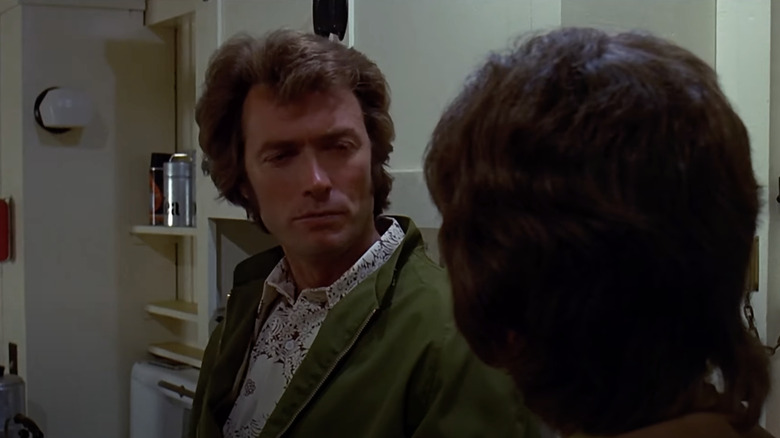
A Gemini is dual-natured, only content when keeping busy with many pursuits at once. Eager to communicate, generally impervious to shame, a Gemini like you can’t be tied down by anyone else’s rules or expectations. Your charm and wit let you fit in just about anywhere and make strangers into friends easily, but be careful. That same ease and energy may lead some to misinterpret your intentions, which is why Geminis have a reputation for being two-faced or duplicitous.
Dave Garver, the caddish jazz DJ played by Eastwood in his 1971 directorial debut “Play Misty for Me,” is a textbook Gemini. Dave hosts a late night radio show, and every evening brings a breathy request from a female caller for the Erroll Garner standard “Misty.” One night he meets this woman, Evelyn (Jessica Walter), in real life. They share a passionate moment together, but as it becomes increasingly clear that Dave’s interest in her doesn’t extend any further than that, and that he already has a girlfriend (Donna Mills), Evelyn becomes unhinged and dangerous. Soon, Dave’s life is in a shambles and his girlfriend finds herself caught in the crossfire as Evelyn’s intentions turn from amorous to murderous.
Cancer (June 21-July 22): Josey Wales
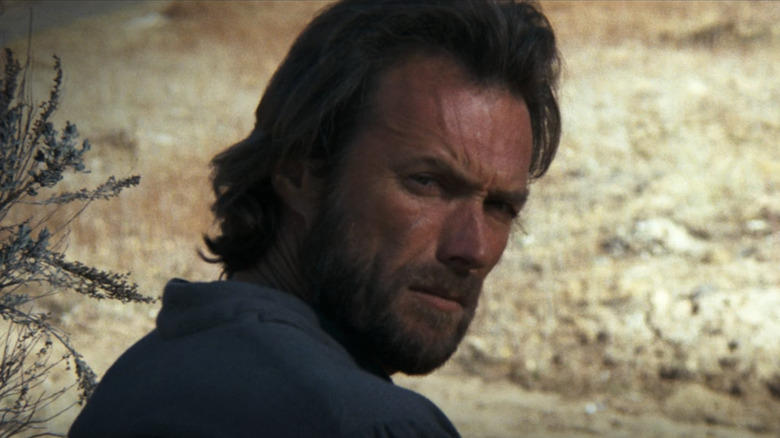
As outgoing as a Gemini might be, a Cancer flows in the opposite way, toward reticence, domesticity, and peace and quiet. As a Cancer you might have only a few close friends, but not because you don’t value friendship. On the contrary, your loyalty to your friends is second to none; it just takes some time for them to get past your defenses. For some, the effort might not be worth it, but for the lucky few willing to put in the work, you are a lifelong partner.
That might as well be the plot synopsis of “The Outlaw Josey Wales,” Eastwood’s celebrated 1976 Western based on a novel by fake Indian and segregationist speechwriter Forrest Carter. The eponymous outlaw has much of the same grim stoicism and deadly intent as Eastwood’s roles in the “Man with No Name” trilogy and “High Plains Drifter,” but with the added wrinkle that he can’t help but collect strays wherever he goes, from a wily indigenous man played by Chief Dan George to a group of pacifist Kansans led by longtime Eastwood paramour Sondra Locke. At the start of the film, Wales is the only survivor of a Union Army raid that kills his entire family; by its bloody climax, he has collected a new family to protect and to die for, if needed. Typical Cancer.
Leo (July 23-August 22): “Bronco” Billy McCoy
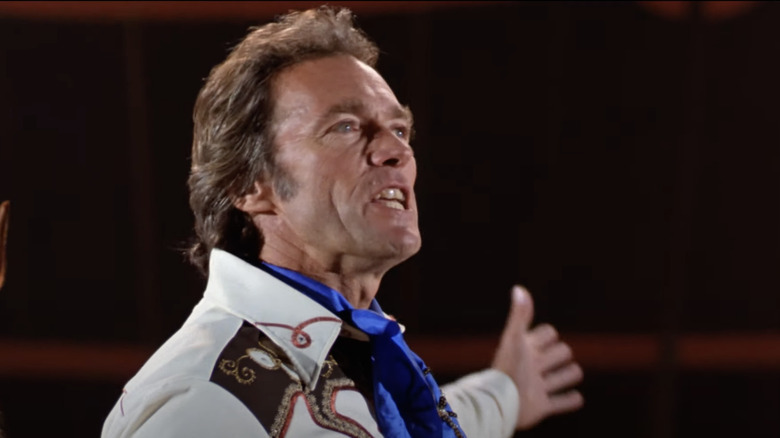
A Leo like you loves the spotlight. Just as your leonine namesake, you are the leader of your pride, and with plenty of pride to go around. Larger than life, gregarious, dramatic — to a Leo, all the world’s a stage. Leo is a fire sign, ruled by the sun, and like the sun, your light can’t be diminished, but it can be eclipsed. Losing the spotlight is perhaps your greatest fear, and the insecurity that provokes it is perhaps a Leo’s greatest weakness.
The typical Eastwood hero is one who shuns the spotlight, even (or especially) when he becomes well-known, like Josey Wales or William Munny from “The Unforgiven.” “Bronco” Billy McCoy, the Wild West showman at the heart of 1980’s “Bronco Billy,” is one of the few true Leos in his body of work. Billy presides over a ragtag crew of cowboys and carnies, traveling across the West and performing stunts for increasingly dwindling crowds. Released the same year as “Any Which Way You Can” (also the year Eastwood turned 50), it’s not hard to read a certain amount of autobiography into Billy, a phony cowboy staring down age and obsolescence, a Leo facing his greatest fear.
Virgo (August 23-September 22): Steve Everett
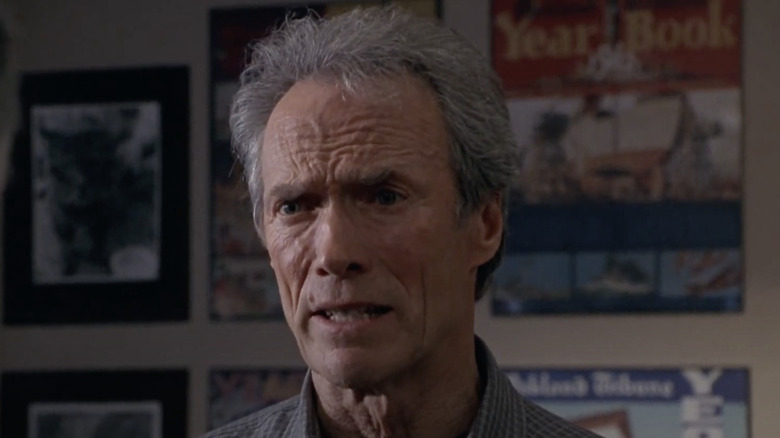
Virgos, you know what’s up. You’re meticulous, detailed, and practical. You want to help others in any way you can. This desire to be useful is often a noble thing, but it has its drawbacks. It’s never good to put anything or anyone — including yourself — on a pedestal. Failure can lead to crushed dreams, lost ideals, and cynicism. You are at your best when applying your intellect and skills in service of something greater than yourself.
If that description reads like it might also apply to a self-destructive journalist given one last shot at redemption, you’re not wrong. In 1999’s “True Crime,” Eastwood adapted Andrew Klavan’s death row potboiler into a meditation on second chances and last ones. Washed-up investigative journalist Steve Everett (Eastwood) has nearly tanked his career with drinking and womanizing when he is assigned to cover a convicted killer’s (Isaiah Washington) last day before he is executed. But when Everett begins to suspect that the man may be innocent, he launches a desperate investigation to stop the execution. Like a true Virgo, he is invigorated by a renewed sense of purpose and the hope of making a real difference, however long a shot it might be.
Libra (September 23-October 20): Walt Kowalski
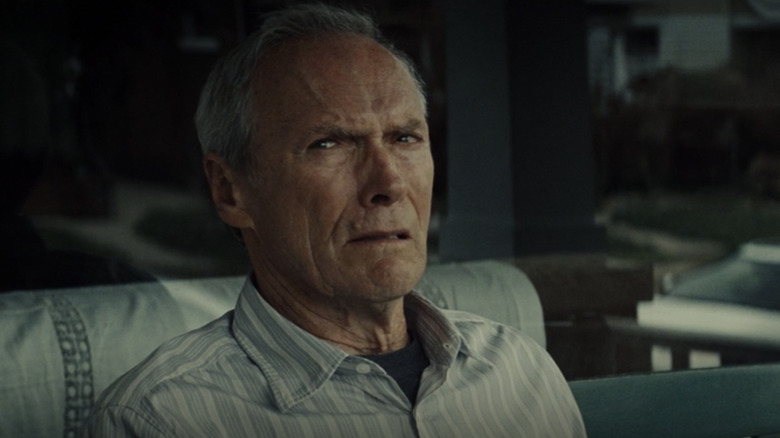
The Libra is symbolized by a set of scales for good reason: They crave symmetry, balance, and fairness. As a Libra, you naturally gravitate toward people, places, and things — often the finer things — that will help achieve equilibrium in your life. Relationships are paramount; it takes two to balance the scales, after all. But those scales can also symbolize ambivalence and indecision. It can be easy to get lost in your own head when weighing your preference for one thing over another; trust your instinct to guide you correctly.
Walt Kowalski, the angry, openly-racist retired autoplant worker who becomes the unlikely protector of a family of Hmong refugees in 2008’s “Gran Torino,” might not seem to be a very good Libra. Walt would certainly never think of himself as an aesthete, except for the fact that he has a pristine 1972 Ford Gran Torino in his garage. As the film begins, Walt has recently become a widower; he doesn’t talk about his feelings, but the loss of his wife has clearly unmoored him and weighs heavily on his decision-making. While the film doesn’t sugarcoat Walt’s racial prejudices, ultimately his sense of fairness and justice overcomes his bigotry.
Scorpio (October 23-November 21): The Man with No Name
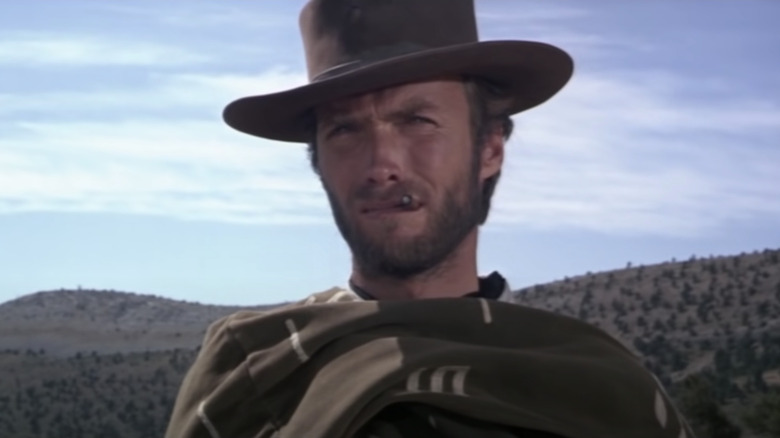
The mysterious Scorpio is patient, and knows when to strike at the right time for maximum (or Sudden) impact. Though often mistaken for a fire sign due to your passionate nature, a Scorpio like you is actually a water sign, calculating and methodical, able to sense danger from a mile away. You know what you want and are not afraid to go get it, and that confidence is enough to win over any skeptic. Well, that and a well-chosen poncho.
After six years on “Rawhide,” Eastwood made a trio of spare, mythic Westerns in Spain for Italian director Sergio Leone: 1964’s “A Fistful of Dollars,” 1965’s “For a Few Dollars More,” and 1966’s Civil War-set “The Good, The Bad and The Ugly.” The films were billed as a trilogy in the US, with Eastwood as “The Man with No Name,” even though his characters all have names — in fact, different names — in each film. The “Dollars” trilogy was about as far away from “Rawhide” as Spain was from California, more violent and sexual than Hollywood dared at the time, and with a moral ambiguity that rankled some cowboy stars of the previous generation. No matter if his name is Joe, Monco, or Blondie, Eastwood stalks across the barren landscape of Leone’s dreamlike West in his wide-brimmed hat and striped serape, sensing violence around every corner and ready to respond in kind.
Sagittarius (November 22-December 21): Robert Kincaid
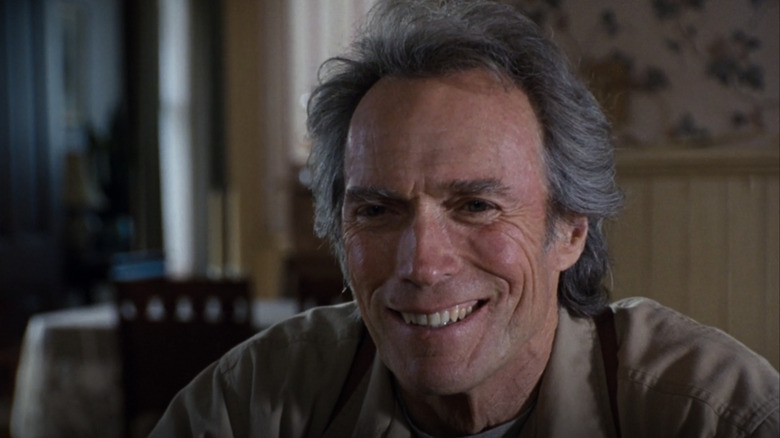
Sagittarius is a traveler, hungry for movement and thirsty for knowledge, as symbolized by the half-man half-horse centaur. Sagittarius is the last fire sign on the zodiac calendar, and those of you born under its sign are unique in your passion and versatility. You make fast friends, though you can lose friends just as quickly, as your honesty can run to the blunt side. No matter, because the next adventure always awaits.
Robert Kincaid from 1995’s “The Bridges of Madison County” is a traveler and a man of knowledge, charming and handsome, a natural Sagittarius. And like that sign, the film is unique in Eastwood’s filmography, a gentle if forbidden romance between his Kincaid (a photographer for National Geographic) and Francesca (Meryl Streep), an Italian war bride living in 1960s Iowa. A chance meeting leads to Francesca guiding him through the titular county and its bridges while her husband and children are away. Their love is no less passionate for having an expiration date, as her family must return and he must move on to the next assignment. The film belongs to Streep as much as it does Eastwood, as his love of life awakens her own passions; decades later, Francesca’s children learn just how deeply their mother was marked by Robert.
Capricorn (December 22-January 19): “Dirty” Harry Callahan
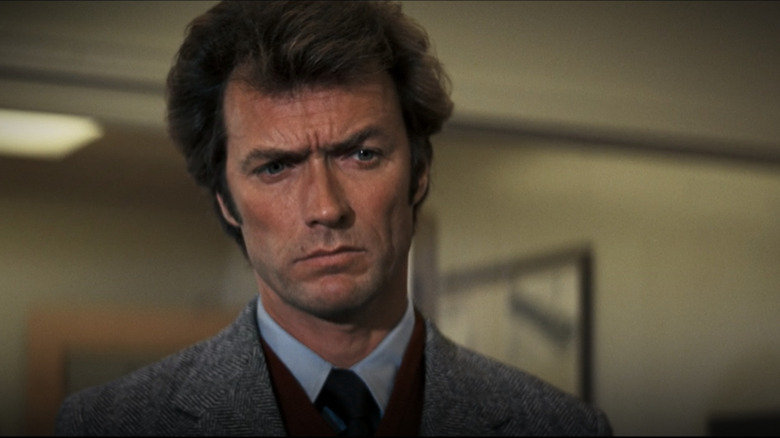
As astrologer Aliza Kelly writes, “Capricorns are relentless: They are determined to overcome whatever stands in their way.” Hardworking and dedicated, a Capricorn like you will get the job done no matter what. You are ambitious and resilient. You attract others through a combination of confidence, modesty, and a rebellious streak that not everyone can see. And if others sometimes see that dedication as coldness, what they think doesn’t matter anyway. You’ll get the job done, no matter what anyone else or the Bill of Rights has to say about it.
Eastwood’s “Dirty” Harry Callahan is perhaps his most indelible role after The Man with No Name, and a Capricorn to his core. A police officer dedicated to the rule of law, Callahan simultaneously has no compunction with breaking those same laws, often violently, in the name of justice. This often puts him on the wrong side of the Constitution, if not history, as in the first film of the series, when Callahan’s brutal apprehension of the suspected Scorpio Killer (Andrew Robinson) constitutes a civil rights violation and puts the killer back on the streets. Callahan knows what’s right and what’s just, and if anyone or anything gets in the way of that higher aim, then so be it.
Aquarius: (January 20-February 18): William Munny
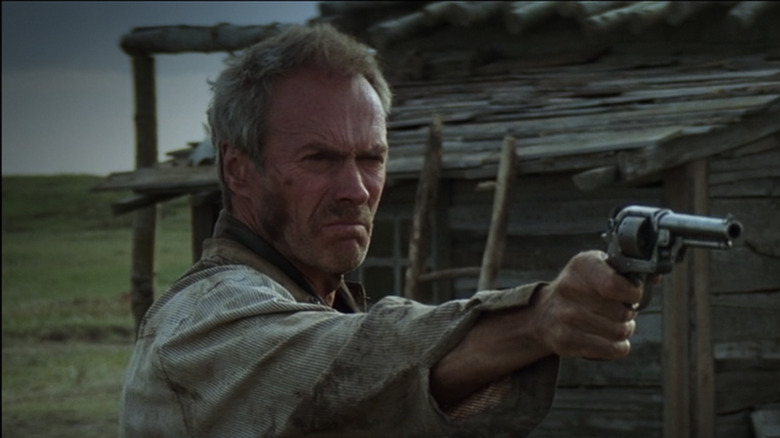
Despite its name, Aquarius is not a water sign, but rather an air sign. If you are an Aquarius, you are a water-bearer, reflective and restorative, but with a stubborn streak. Once an idea gets into your head, it isn’t going anywhere. And if someone does in fact manage to change your mind, it is often through an appeal to community service. Aquarians want to make the world a better place, whether that means raising your children in a world without violence, or returning to violence in the name of social justice.
William Munny, the destitute Kansas hog farmer in Eastwood’s 1992 Western farewell “Unforgiven,” was once a vicious gunslinger. He put his guns away once to become a husband and father, but now picks them up again, along with his old friend (Morgan Freeman), to apprehend a group of cowhands who disfigured a sex worker in the frontier town of Big Whiskey. The promise of a bounty lures William back into the life, but he’s also moved by the plight of the injured woman and her fellow prostitutes, who have put up the bounty money themselves to buy the justice that the law (represented by Gene Hackman’s dictatorial sheriff Little Bill) won’t provide. Blood and death await William in Big Whiskey, but also the chance to make a difference in the world, no matter how small.
Pisces (February 19-March 20): Frankie Dunn
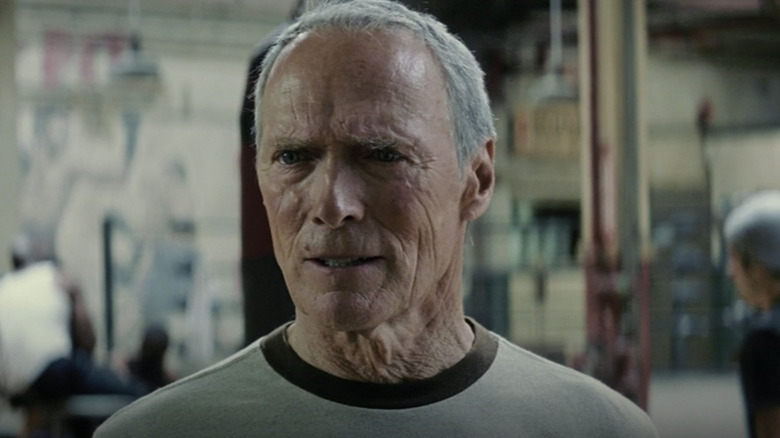
The final constellation on the zodiac calendar, Pisces carries the accumulated experiences, positive and negative, of the signs that came before. As a Pisces you are symbolized by two fish swimming in opposite directions, representing how you exist in both the physical and spiritual realms, as well as your penchant for escapism, especially when things get rough. You are a dreamer and an artist, no matter if your canvas rests on an easel or underneath a boxing ring.
Frankie Dunn, the cantankerous trainer in Eastwood’s 2004 boxing Oscar-winning drama “Million Dollar Baby,” allows himself to dream once more as he begins to train unlikely phenom Maggie Fitzgerald (Hilary Swank), who comes into his gym one day not even knowing how to work a speed bag. Before long she (and he) are climbing the ranks of women’s professional boxing — but when tragedy strikes, Frankie faces an impossible decision. Though he has a reputation as a man’s man, many of Eastwood’s most enduring screen partners have been women, whether romantic pursuits like Streep and Sondra Locke, kindred spirits like the sex workers in “Unforgiven,” or daughter figures like Amy Adams and Swank here. Frankie and Maggie find physical transcendence in the ring, and spiritual transcendence in each other, as seen in their heartbreaking final moments together.
You may like
Clint Eastwood
Mystic River: Why Clint Eastwood’s Best Movie Still Holds Up Today

A filmmaker of Clint Eastwood‘s caliber is going to have a filmography full of gems. Primarily known for his work in Westerns, biopics, and military dramas, every so often, Eastwood steps outside his comfort zone and delivers in a genre that would seem completely unexpected on paper. That happened in 2003 with Mystic River, a neo-noir murder mystery drama that seems a bit forgotten or overlooked, even though it was a financial success and earned six Academy Award nominations. It represents Eastwood at his very best, breathing vivid life into complex characters as he examines a plethora of themes that range from loyalty, friendship, revenge, and, ultimately, forgiveness.

Mystic River is based on the 2001 novel of the same name by Dennis Lehane, and it follows the lives of three childhood friends, Jimmy Markum (Sean Penn), Sean Devine (Kevin Bacon), and Dave Boyle (Tim Robbins), living in Charlestown, Boston in 1975. Dave is kidnapped by two men claiming to be police officers, and he’s sexually abused by them over a four-day period until he escapes. The traumatic event shapes the three friends, and they ultimately lead very different lives twenty-five years later.
Jimmy is an ex-con that now owns a convenience store in the neighborhood, Sean works for the Massachusetts State Police as a detective, and Dave is your everyday blue-collar worker that still lives with the trauma of being abducted and raped. Their lives are forced together once again through tragedy when Jimmy’s daughter Katie (Emmy Rossum) is found murdered, and friendship is tested when all signs point to Dave being the murderer.
Mystic River Is a Departure From Clint Eastwood’s Other Work
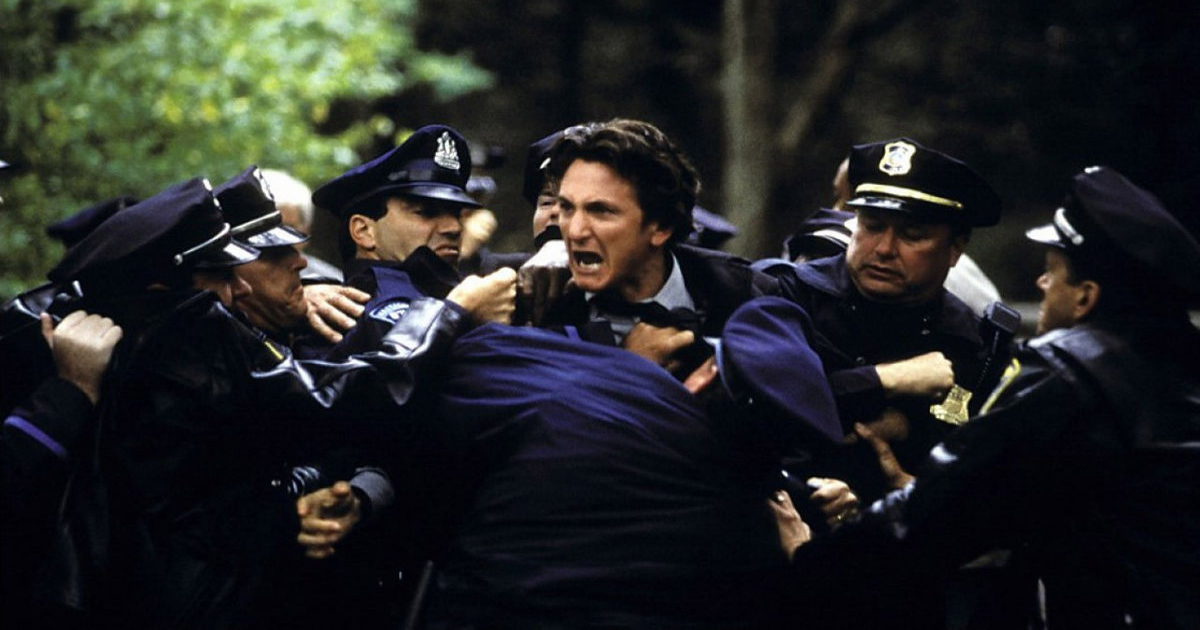
Eastwood tackles the material in Mystic River with a sure and confident hand. It also represents a unique departure from some of his other films. Much of the action takes place under the cover of darkness, and Eastwood is able to find beauty in that darkness. The filmmaker focuses on a character’s eyes or the gleam of a weapon, for instance, as darkness permeates most of the scene.
For the scenes that take place during the day, the filmmaker opts for tight close-ups that linger over the emotions of his impressive cast. There is something uncomfortably intimate about Mystic River, and that has much to do with the subject matter. None of this story is particularly easy to digest, and Eastwood adds to that discomfort with his choices to frame scenes in such a way that’s almost intrusive. The audience feels a growing sense of dread and tension as more of the story unfolds.
Using Lehane’s novel and Brian Helgeland’s screenplay as a blueprint, Eastwood profoundly explores generational trauma and how the sins of the past can leave a permanent mark on our present. Even though the abuse only happened to Dave, the effects of the event leave a mark on all three friends, with Dave being the primary victim and the others feeling a sense of survivor’s guilt for not being subjected to it themselves.
The ordeal forever changes their union because they’re never quite able to look at each other the same way again, as each friend deals with the trauma differently. Jimmy is stunned by the act of abuse but can’t give Dave the support he needs, which then bleeds into their present when Jimmy begins to suspect that Dave had something to do with his daughter’s murder. He doesn’t want to consider that his friend would do something like this because of the trauma he endured as a child, but as evidence mounts against him, Jimmy has to decide if friendship and loyalty overshadow his need for vigilante justice. The story is rich with so many complexities that make it some of Eastwood’s most compelling work as a filmmaker.
Eastwood also takes his time with the story and lets it unfold as it should. Mystic River is very nuanced, and he knows he’s dealing with heartbreaking subject matter that requires patience and respect. The story is grounded in so much reality that Eastwood seems keenly aware that a viewer might be an actual victim of this kind of abuse themselves, so he delicately approaches the topic and gives it the emotional weight it deserves.
He also shows the uncomfortable side of abuse where the victim, unfortunately, can be shamed because of the event. Dave becomes an outsider later in his life, even with his close friends, something that sadly comes along with this kind of trauma. Eastwood approaches all of this responsibly and provides a very balanced outlook to all the events transpiring on screen.
Mystic River has become known for its powerhouse performances, and Eastwood pulls the very best from his ensemble cast. While the scenes with the young actors are brief in the beginning, they set the tone of who these people will be twenty-five years later. Dave becomes the outcast because of the event; Jimmy lacks empathy and doesn’t trust authority, while Sean becomes the grounded one of the bunch and a police officer in an attempt to prevent a tragedy like this from ever happening again.
Clint Eastwood Pulls Powerhouse Performances From His Cast
Tim Robbins, Sean Penn, and Kevin Bacon do a great job conveying the unspoken tension between all three of these characters. There is a sense of loyalty, but so much has taken place over the years that it has forced them all to lead very different lives. As a group, they are uniformly excellent. You feel the history between the characters and the bonds that were broken, only to be reopened by a new traumatic event.
On their own, Penn gives the performance of a lifetime as Jimmy, and it’s not a shock that this turn finally earned him his first Academy Award for Best Actor. Penn is a dominant presence in all of his scenes, and there is a sense of uncertainty whenever he’s around because you don’t know exactly what move he will make.
That’s not to say he doesn’t display layers. All of that bravado is broken once he finds out his daughter is murdered. It’s hard to pinpoint a director’s best scene on film, but what Eastwood pulls out of Penn during the “Is that my daughter?” sequence represents some of his very best work as a filmmaker.
Robbins also received an Academy Award for Best Supporting Actor for his work here, representing a much-deserved win. As Dave, Robbins is the tragic and emotional heart of the story. The viewer feels instant empathy for Dave due to what he went through as a child, but you’re also left questioning everything when it seems like Dave could be the one who murdered Katie.
Robbins keeps you on your toes throughout, making you question his innocence while also seeing the tenderness in him as he interacts with his own child, who is just about the age he was when he was abused. As for Bacon, of the three male leads, he gives the most subdued performance, but it suits the character. He’s trying to make everything right and keep it all together. It’s a subtle performance that carries its own emotional weight.
Eastwood also makes the supporting roles worthy of attention. Marcia Gay Harding, as Dave’s wife Celeste, puts in powerful work here that earned her a Best Supporting Actress Oscar nomination, while Laura Linney more than holds her own with Penn as his second wife, Annabeth. In addition, Laurence Fishburne also fills in as Sgt. Whitey Powers in another excellent part.
Mystic River is a haunting and poetic motion picture that showcases a director laying it all out on the table. Eastwood gives the audience everything he has as a director and pours it out across the screen in a film that is just as powerful twenty years after its initial release.
Clint Eastwood
Clint Eastwood’s Most Iconic Non-Western Role Was Only Possible Because Of This Actor

SUMMARY
Clint Eastwood’s role in Dirty Harry is considered one of his most iconic, and the film is a classic in the crime genre.
Paul Newman initially turned down the role of Harry Callahan in Dirty Harry but recommended Clint Eastwood for the part.
Newman declined the role due to his liberal beliefs, and Eastwood’s portrayal of Callahan differed from Newman’s perspective, but both respected each other.
SCREENRANT VIDEO OF THE DAY

Although Clint Eastwood first built his impressive career on Western movies like The Man with No Name franchise and The Outlaw Josey Wales, the actor’s biggest non-Western role in Dirty Harry is one of his most iconic, and it might have never happened without this one actor. Clint Eastwood began acting in the 1950s, and over several decades, became a staple in the Western genre. What makes Eastwood stand out is the fact that he has not only appeared in countless films, but has also directed them himself. Films like Unforgiven and Gran Torino have defined his career. However, Dirty Harry is by far one of Clint Eastwood’s best films.
In 1971, Clint Eastwood starred in the neo-noir action film Dirty Harry. The film, and its adjoining sequels, follow Inspector “Dirty” Harry Callahan, a rugged detective that is on a hunt for a psychopathic serial killer named Scorpio. The Dirty Harry franchise lasted from 1971 to 1988, and has since been considered a classic. In fact, Dirty Harry was selected for preservation in the United States National Film Registry by the Library of Congress because of its cultural significance. However, this film might have been vastly different if Clint Eastwood had never been in it, and scarily enough, this definitely could have happened back in 1971.
Paul Newman Rejected Dirty Harry Before Suggesting Clint Eastwood For The Role
Dirty Harry went through many production challenges before it was actually made, and one of those included casting the iconic detective. In the film’s early stages, the role was offered to actors such as John Wayne, Robert Mitchum, Steve McQueen, and Burt Lancaster. However, for various reasons, including the violence that permeates the film, these actors all declined. For a time, Frank Sinatra was attached to the project, but he also eventually left the production. In reality, Clint Eastwood wasn’t even in the cards for portraying Dirty Harry, but his big break came when Paul Newman was offered and declined the role.
Paul Newman, like many amazing actors before him, was offered the role of Harry Callahan, but ultimately said no. However, what makes his refusal stand out among the rest is that he recommended another actor that could be perfect for the role: Clint Eastwood. At this time, Eastwood was in post-production for his first film Play Misty for Me, meaning his career was taking something of a turn. Also, unlike his predecessors, Eastwood joined up with Dirty Harry, just as Newman thought he would. Because of his Western roots, the violence and aggression that made up Dirty Harry didn’t bother Eastwood at all.
Why Paul Newman Turned Down Dirty Harry
Paul Newman turning down the leading role in Dirty Harry may not seem too surprising considering the host of other actors that also declined the movie, but Newman definitely had his reasons. While previous actors had condemned the movie for its incredible violence and themes of “the ends justify the means,” Newman refused to take the role because of his political beliefs. Since Harry Callahan was a renegade cop, intent on catching a serial killer no matter the cost or the rules that would be broken, Newman saw this character as too right-wing for his own liberal beliefs.
Paul Newman was an outspoken liberal during his life. He was open about his beliefs, so much so that he even made it onto Richard Nixon’s enemies list due to his opposition of the Vietnam War. Other issues that Newman spoke out for included gay rights and same-sex marriage, the decrease in production and use of nuclear weapons, and global warming. As a result of his politics, Newman quickly denied the role of Harry Callahan. In an interview with Entertainment Weekly as reported by Far Out Magazine, Clint Eastwood commented that he didn’t view Callahan in the way Newman did, but still respected him as an actor and a man.
Would Dirty Harry Have Been So Successful Without Clint Eastwood?
Ultimately, it’s hard to say whether Dirty Harry would have been successful without Clint Eastwood. Arguably, any big-time actor could have made the film succeed solely based on their fame. However, one aspect of Dirty Harry and its carousel of actors is that the movie had various scripts, all with different plots. So, if Dirty Harry had been in a different location with a different serial killer and a different lead actor, there’s a chance it wouldn’t have been nearly as successful. In the end, Dirty Harry is a signature for Clint Eastwood, and most likely, audiences are lucky that it was made the way it was.
Clint Eastwood
The story of how Clint Eastwood prevented Ron Howard from embarrassment

A star of American cinema both in front of and behind the camera, Ron Howard is often forgotten when recalling the greatest directors of modern cinema, yet his contributions to the art form remain unmatched. Working with the likes of Tom Hanks, Chris Hemsworth, Russell Crowe and John Wayne, Howard has brought such classics as Apollo 13, A Beautiful Mind and Rush to the big screen.
Entering the industry in the late 1950s and 1960s, Howard started his career as an actor, making a name for himself in shows like Just Dennis and The Andy Griffith Show before his role in 1970s Happy Days would catapult him to national acclaim. His directorial debut would come at a similar time, helming 1977’s Grand Theft Auto, the ropey first movie in a filmography that would later become known for its abundance of quality.
Known for his acting talents, Howard wouldn’t become a fully-fledged director in the eyes of the general public until the 1980s, when he worked with Tom Hanks on 1984’s Splash and George Lucas for the 1988 cult favourite Willow.
With hopes of becoming the new Star Wars, Willow was instead a peculiar fantasy tale that told the story of a young farmer who is chosen to undertake the challenge to protect a magical baby from an evil queen. Starring the likes of Warwick Davis, Val Kilmer and Joanne Whalley, the film failed to make a considerable dent in pop culture at the time, largely being ridiculed by critics and audiences alike.
Screened at the Cannes Film Festival, the movie was spared humiliation by none other than Clint Eastwood, who saw the craftsmanship behind the picture, as described by Ron’s daughter, Bryce Dallas Howard.
Speaking to Daily Mail, the actor recalled: “My dad made a film called Willow when he was a young filmmaker, which screened at the Cannes Film Festival and people were booing afterwards. It was obviously so painful for him, and Clint, who he didn’t know at that time, stood up and gave him a standing ovation and then everyone else stood up because Clint did”.
Dallas Howard, who worked with Eastwood on the 2010 movie Hereafter, became very fond of Eastwood as a result, looking up to him as an exemplary Hollywood talent. “Clint puts himself out there for people,” she added, “As a director he is very cool, very relaxed, there’s no yelling ‘action’ or ‘cut’. He just says: ‘You know when you’re ready.’ I told my dad he should do that!”.
Take a look at the trailer for Howard’s 1988 fantasy flick below.
Trending
-

 Entertainment10 months ago
Entertainment10 months agoJohn Wayne’s son speaks on military service, Hollywood life and his dad, ‘The Duke’ – My Blog
-

 Entertainment10 months ago
Entertainment10 months ago40 Legendary John Wayne Quotes – My Blog
-

 Entertainment11 months ago
Entertainment11 months agoNew biography reveals the real John Wayne – My Blog
-

 Entertainment1 year ago
Entertainment1 year agoWhy one POPULAR ACTOR was FIRED from THE SONS OF KATIE ELDER and lost his career as a result! – Old western – My Blog
-

 Entertainment10 months ago
Entertainment10 months agoHow Maureen O’Hara Broke Her Hand During Iconic Scene With John Wayne – My Blog
-

 Entertainment11 months ago
Entertainment11 months agoRio Lobo (1970) marked the last collaboration between John Wayne and Howard Hawks. – My Blog
-

 Entertainment11 months ago
Entertainment11 months agoDid John Wayne really have a good time filming 1972’s The Cowboys? – My Blog
-

 Entertainment10 months ago
Entertainment10 months agoJohn Wayne and the ‘Bonanza’ Cast Appeared in This Epic Coors Light Commercial – My Blog

